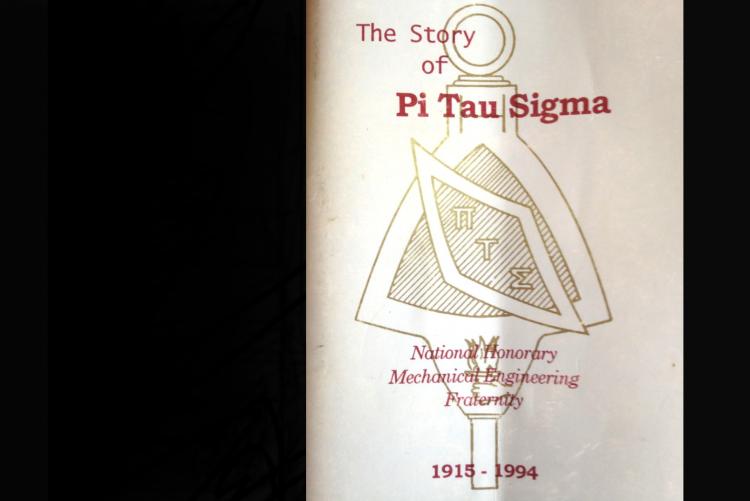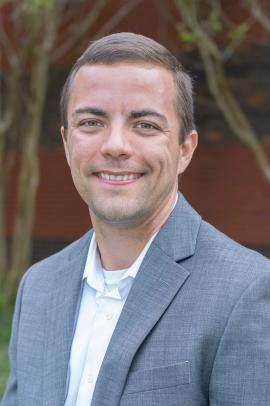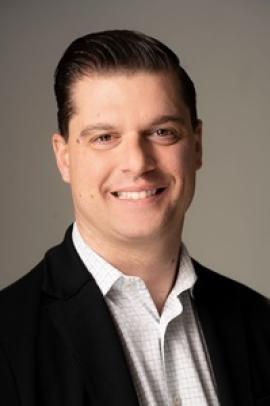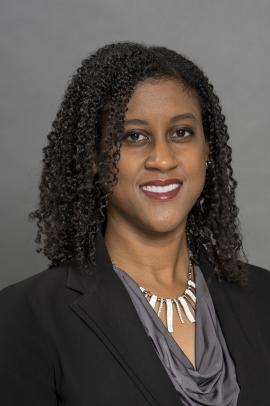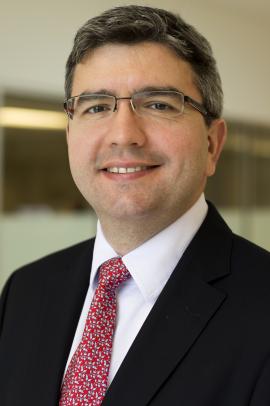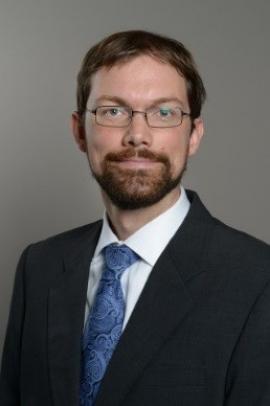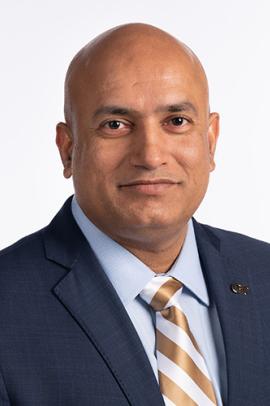History of Pi Tau Sigma
With the twentieth century came the realization that honor societies made a
definite contribution to the department and that membership required active
participation. Pi Tau Sigma came into being on March 16, 1915, at the University
of Illinois. A similar organization embarked November 15, 1915, at Wisconsin,
and other local organizations (such as the Carzeuran of Purdue) were soon to
become active.
The early leaders: Professors C. R. Richards, A. C. Willard, and O. A. Leutwiler
of the University of Illinois; G. L. Larson of the University of Wisconsin; G. A.
Young of Purdue University; and J. V. Martenis of the University of Minnesota,
stand out for their early contributions.
In ten years Pi Tau Sigma grew to six chapters in the Midwest (Illinois Alpha,
Wisconsin Alpha, Purdue Beta, Minnesota Gamma, Illinois Delta, and Missouri
Epsilon). In 1925 the expansion continued to the east with the Penn State Zeta
Chapter being installed. Six years later the Texas Kappa Chapter, and the following
year the Colorado Mu Chapter established chapters in the south and west.
Also in 1932, the expansion continued southeast to Georgia Tech Nu Chapter. It
was not until nine years later that the first chapter was installed on the Pacific
coast (Oregon State Omega). In twenty-six years, Pi Tau Sigma became truly a
national honorary mechanical engineering fraternity with a total of twenty-five
chapters. During the succeeding four years nine additional chapters were installed.
From 1947 to 1958 forty new chapters were installed. The Chapter-At-Large was
established in 1954. The installations completed through the spring of 2017 bring
the total established chapters to one hundred and seventy-eight.
CONDENSER
The Condenser was conceived at the eighth annual Pi Tau Sigma convention held at Illinois Alpha Chapter in Urbana, Illinois, in 1925 when National Secretary-Treasurer John V. Martenis was instructed to issue an annual publication for the fraternity. The issue was dedicated to serve as a common medium of exchange of ideas between chapters. In compliance with instructions, Volume 1, No. I of The Condenser was published in Minneapolis as of June 1926. It consisted of eight, 8 in. x 11 in. pages with white cover and included editorial notes and comments, the welcoming speech of President A. C. Willard to the preceding convention, and news from the Chapters.
Editor Martenis continued the publication each year through Volume VI. During this early period the Condenser grew from eight to sixteen pages as the number of chapters increased and contributions to copy increased. It served its purpose to the growing fraternity.
Because of the established policy of having National Secretary act as editor of The Condenser, National Secretary-Treasurer H. E. Degler took over with Volume VII. At this time the date of issue was established for March of each year. Volume VII, issued from Austin, Texas, was expanded in size to 9 in. x 12 in. and to 14 pages to accommodate increased growth. Pictures of college buildings, detailed convention minutes, and a cover plate of a halftone Condenser appeared for the first time. Again, fulfilling the requests of the convention, Volume VII contained a complete membership roll of the fraternity.
To assist in the work of the National Secretary-Treasurer, the National Vice President twice edited the Condenser. Volume X was edited by E. S. Gray from Columbia, Missouri, in 1936 and V. L. Maleev edited Volume XII in 1938 from Stillwater, Oklahoma. With these exceptions, H. E. Degler continued the editorship through Volume XIV, the Silver Anniversary Issue.
Notable among the issues of The Condenser was the Silver Anniversary Issue, commemorating the twenty- fifth anniversary of the founding of Pi Tau Sigma. It consisted of 52 pages with a cover of aluminum foil. The feature article was the history of 25 years in Pi Tau Sigma.
A revision of the Constitution was made at this time increasing the number of National officers by including two Vice Presidents. The duty of the First Vice President was to edit The Condenser. The first issue under this plan, Volume XV of 1941, was edited by T. G. Estep, Carnegie Iota, from Pittsburgh, Pa.
Volume XVI (1942) through Volume XX (1947) were edited by F. V. Larkin, Bethlehem, Pa., with assistance from the active members of Lehigh Theta Chapter.
Volumes XXI and XXII were edited by C. H. Kent, New York, NY, with assistance from the active members of C.C.N.Y. Pi Beta Chapter.
Volumes XXIII through XVI were edited by M. S. Gjesdahl, State College, Pa., with the assistance of active members of the Penn State Zeta Chapter and the Purdue Beta Chapter.
Volumes XXVII through XXXII were edited by M. J. Goglia, Atlanta, GA., with the assistance of active members of the Georgia Tech Nu and the Purdue Beta Chapters.
Volume XXXIII was edited by D. S. Clark, Lafayette, Indiana, G. B. Thom, Newark, NJ. J. W. Bayne, Urbana, Illinois edited the issued through 1971. H. C. Hewitt, Cookeville, Tennessee, edited issues from 1972 through 1983. E. I. Griggs, Cookeville, Tennessee, has edited issues since 1983.
The Condenser grew from an eight page pamphlet dedicated to an exchange of ideas to a magazine of sixty-eight pages (Vol. XXII) incorporating editorials and articles as well as the minutes and pictures of the preceding national convention, the biographies and picture of the recipients of the Pi Tau Sigma Gold Medal and Pi Tau Sigma Richards' Memorial Awards, the pictures and records of all honorary members, a story and picture of the Host University or College for the succeeding convention, and a resume of the activities of all chapters including the pictures of the mechanical engineering building.
With the increased cost of publications, all of which are paid by the national chapter out of the dues received from members, it became necessary to retrench so that effective with Volume XXIII the articles were omitted and effective with Volume XXV the pictures of the buildings were not repeated, as they appear in The Story of Pi Tau Sigma.
At the Thirty-first Annual Convention in 1951 recommendations were made to the editors of The Condenser and The Story of Pi Tau Sigma to avoid duplication.
A special 50th anniversary issue of The Condenser was published in 1965. The issue, edited by J. W. Bayne included several items of historical interest plus greetings from five past National Presidents.
|
National Presidents |
|||
|
A. C. Willard |
1920-1922 |
|
|
|
G. A. Young |
1923-1925 |
|
|
|
G. L. Larson |
1926-1928 |
|
|
|
O. A. Leutwiler |
1929-1931 |
|
|
|
J. V. Martenis |
1932-1940 |
|
|
|
H. E. Degler |
1941-1947 |
|
|
|
B. H. Jennings |
1948-1950 |
|
|
|
F. L. Schwartz |
1950-1953 |
|
|
|
M. S. Gjesdahl |
1953-1956 |
|
|
|
C. M. Leonard |
1956-1959 |
|
|
|
D. S. Clark |
1959-1962 |
|
|
|
E.K. Springer |
1962-1968 |
|
|
|
D.R.Haworth |
1968-1971 |
|
|
|
J. W. Bayne |
1971-1974 |
|
|
|
E. W. Jerger |
1974-1977 |
|
|
|
S. Chandra |
1977-1980 |
|
|
|
A. R. Peters |
1980-1983 |
|
|
|
H. C. Hewitt, Jr. |
1983-1986 |
|
|
|
W. B. Cottingham |
1986-1989 |
|
|
|
J.R. Welty |
1989-1992 |
|
|
|
S.P. Kezios |
1992- |
|
|
|
|
|
|
|
|
Victor Goldschmidt |
-2004 |
|
|
|
Tom Burton |
2004-2008 |
|
|
|
Mun Y. Choi |
2008-2017 |
|
|
|
Darryl James |
2017- |
|
|
|
National Vice-Presidents |
|||
|
J. B. Wilkenson |
1920-1922 |
|
|
|
G. L. Larson |
1923-1925 |
W.W. Yuen |
1989- |
|
G. A. Young |
1926-1928 |
D. Kadaba |
1991- |
|
C. A. Joerger |
1929-1931 |
R. Gaither |
1992- |
|
Daniel Roesch |
1932-1934 |
||
|
E. S. Gray |
1935-1937 |
||
|
v. L. Maleev |
1938-1940 |
||
|
T. G. Estep |
1941 |
||
|
J. V. Martenis |
1941-1944 |
||
|
F. V. Larkin |
1945-1947 |
||
|
B. H. Jennings |
1945-1947 |
||
|
E. S. Gray |
1947 |
||
|
C. H. Kent |
1948-1949 |
||
|
F. L. Schwartz |
1948-1950 |
||
|
E. C. Baker |
1948-1949 |
||
|
M. S. Gjesdahl |
1949-1953 |
||
|
S. F. Duncan |
1949-1955 |
||
|
C. M. Leonard |
1950-1956 |
||
|
M. J. Goglia |
1953-1958 |
||
|
J. W. Bunting |
1955-1961 |
||
|
E. K. Springer |
1956-1962 |
||
|
G. B. Thorn |
1958-1964 |
||
|
E. C. Hoelscher |
1961-1967 |
||
|
N. H. Barnard |
1962 |
Gloria J. Wiens |
-2017 |
|
D.R. Haworth |
1963-1968 |
||
|
C. R. Hayleck, Jr |
1964-1970 |
||
|
E.W. Jerger |
1967-1973 |
Ed Griggs |
|
|
E. L. Dowty |
1968-1975 |
Massoud Kaviany |
|
|
S. Chandra |
1970, 1976 |
Hassan Ghazi |
-2004 |
|
W.T. McKie |
1973-1974 |
Tom Burton |
2004- |
|
G. C. Whitehouse |
1974-1979 |
Ron D. Boyd |
2004-2012 |
|
A. R. Peters |
1975-1980 |
Dave Bayless |
-2010 |
|
J. R. Gartner |
1976-1982 |
Franco Capaldi |
-2011 |
|
W. B. Cottingham |
1979-1985 |
Chris Wilson |
2010-1020 |
|
J. N. Crisp |
1981-1984 |
Raghu Echempati |
2011-2013 |
|
W. W. Walter |
1982-1988 |
Antonios Kontsos |
2013-2023 |
|
J. R. Welty |
1984-1986 |
Altaf Khan |
2014-2019 |
|
S. P. Kezios |
1986-1991 |
Darryl James |
2014-2017 |
| C. Spiekerman | 1988-1992 | Yolanda Mack | 2017-2025 |
| Bogdan Epureanu | 2020- | ||
| Cynthia Mitchell | 2023- | ||
| Jacob McFarland |
2023- |
||
|
National Secretary-Treasurers |
|
|
G. L. Larson |
1920-1922 |
|
J. V. Manenis |
1923-1931 |
|
H. E. Degler |
1932-1940 |
|
E. S. Gray |
1941-1946 |
|
L. J. Bradford |
1947 |
|
D. S. Clark |
1948-1959 |
|
J. W. Bayne |
1959-1971 |
|
H. C. Hewitt, Jr., |
1971-1983 |
|
Ed I. Griggs |
1983-1995 |
|
Farrokh Mistree |
1995-2008 |
|
Alex Moutsoglou |
2008-2020 |
| Gregory Michna | 2020-2023 |
| Arden Moore | 2023- |
|
National Conventions |
|||
|
Place |
Year |
Host Chapter |
|
|
1 |
Chicago, IL |
1916 |
Organization |
|
2 |
Urbana, IL |
1917 |
Illinois Alpha |
|
3 |
Madison, WI |
1920 |
Wisconsin Alpha |
|
4 |
Urbana, IL |
1921 |
Illinois Alpha |
|
5 |
Madison, WI |
1922 |
Wisconsin Alpha |
|
6 |
Lafayette, IN |
1923 |
Purdue Beta |
|
7 |
Minneapolis, MN |
1924 |
Minnesota Gamma |
|
8 |
Urbana, IL |
1925 |
Illinois Alpha |
|
9 |
Madison, WI |
1926 |
Wisconsin Alpha |
|
10 |
Lafayette, IN |
1927 |
Purdue Beta |
|
11 |
Chicago, IL |
1928 |
Armour Delta |
|
12 |
Cincinnati, OH |
1929 |
Cincinnati Eta |
|
13 |
State College, PA |
1930 |
Penn State Zeta |
|
14 |
Columbia, MO |
1931 |
Missouri Epsilon |
|
15 |
Urbana, IL |
1932 |
Illinois Alpha |
|
16 |
Chicago, IL |
1933 |
Armour Delta |
|
17 |
Madison, WI |
1934 |
Wisconsin Alpha |
|
18 |
Lafayette, IN |
1935 |
Purdue Beta |
|
19 |
Austin, TX |
1936 |
Texas Kappa |
|
20 |
Bethlehem/Philadelphia, PA |
1937 |
Lehigh Theta and Drexel Xi |
|
21 |
Stillwater, OK |
1938 |
Oklahoma Lambda |
|
22 |
Atlanta, GA |
1939 |
Georgia Tech Nu |
|
23 |
Iowa City, IA |
1940 |
Iowa Omicron |
|
24 |
Pittsburg, PA |
1941 |
Carnegie Iota |
|
25 |
Minneapolis, MN |
1942 |
Minnesota Gamma |
|
26 |
Austin, TX |
1946 |
Texas Kappa |
|
27 |
Lafayette, IN |
1947 |
Purdue Beta |
|
28 |
Madison, WI |
1948 |
Wisconsin Alpha |
|
29 |
Bethlehem, PA |
1949 |
Lehigh Theta |
|
30 |
Cincinnati, OH |
1950 |
Cincinnati Eta |
|
31 |
Lexington, KY |
1951 |
Kentucky Pi Lambda |
|
32 |
Milwaukee, WI |
1952 |
Marquette Pi Delta |
|
33 |
Ann Arbor, MI |
1953 |
Michigan Pi Rho |
|
34 |
Blacksburg, VA |
1954 |
Virginia Tech Upsilon |
|
35 |
Stillwater, OK |
1955 |
Oklahoma Lambda |
|
36 |
State College, PA |
1956 |
Penn State Zeta |
|
37 |
Cambridge, MA |
1957 |
MIT Pi Kappa |
|
National Conventions |
|||
|
|
Place |
Year |
Host Chapter |
|
38 |
Detroit, MI |
1958 |
Detroit Pi Eta |
|
39 |
Pittsburgh, PA |
1959 |
Pittsburgh Tau |
|
40 |
St. Louis, MO |
1960 |
Washington Pi Chi |
|
41 |
New York, NY |
1961 |
C.C.N.Y. Pi Beta |
|
42 |
Lincoln, NE |
1962 |
Nebraska Pi |
|
43 |
Chicago, IL |
1963 |
Illinois Alpha, Illinois Tech Delta, and Northwestern Pi Theta |
|
44 |
College Park, MD |
1964 |
Maryland Tau Mu |
|
45 |
Dallas, TX |
1965 |
S.M.U. Tau Sigma |
|
46 |
Chicago, IL |
1966 |
Illinois Alpha and Wisconsin Alpha |
|
47 |
Lawrence, KS |
1967 |
Kansas Psi |
|
48 |
Detroit, MI |
1968 |
Detroit Pi Eta |
|
49 |
Lafayette, IN |
1969 |
Purdue Beta |
|
50 |
Stillwater, OK |
1970 |
Oklahoma State Lambda |
|
51 |
Baton Rouge, LA |
1971 |
L. S. U. Tau Zeta |
|
52 |
Blacksburg, VA |
1972 |
Virginia Tech Upsilon |
|
53 |
College Station, TX |
1973 |
Texas A & M Sigma Delta |
|
54 |
Notre Dame, IN |
1974 |
Notre Dame Sigma Beta |
|
55 |
Houston, TX |
1975 |
Houston Sigma Zeta |
|
56 |
Atlanta, GA |
1976 |
Georgia Tech Nu |
|
57 |
Baton Rouge, LA |
1977 |
Southern Delta Mu |
|
58 |
Lincoln, NE |
1978 |
Nebraska Pi |
|
59 |
Columbus, OH |
1979 |
Ohio State Pi Mu |
|
60 |
Champaign/Urbana, IL |
1980 |
Illinois Alpha |
|
61 |
Santa Barbara, CA |
1981 |
U.C.S.B. Delta Phi |
|
62 |
College Station, TX |
1982 |
Texas A & M Sigma Delta |
|
63 |
Manhattan, KS |
1983 |
Kansas State Rho |
|
64 |
Columbus, OH |
1984 |
Ohio State Pi Mu |
|
65 |
Austin, TX |
1985 |
Texas Kappa |
|
66 |
Blacksburg, VA |
1986 |
Virginia Tech Upsilon |
|
67 |
Atlanta, GA |
1987 |
Georgia Tech Nu |
|
68 |
Raleigh, NC |
1988 |
NC State Pi Alpha |
|
69 |
Tempe, AZ |
1989 |
Arizona State Sigma Gamma |
|
70 |
Boston, MA |
1990 |
Northeastern Tau Kappa |
|
71 |
Champaign-Urbana, Illinois |
1991 |
Illinois Alpha |
|
72 |
Minneapolis, MN |
1992 |
Minnesota Gamma |
|
73 |
|
1993 |
|
|
74 |
|
1994 |
|
|
National Conventions |
|||
|
|
Place |
Year |
Host Chapter |
|
75 |
1995 |
||
|
76 |
1996 |
||
|
77 |
Ann Arbor, MI |
1997 |
Michigan Pi Rho |
|
78 |
Tuskegee, AL |
1998 |
Tuskegee Sigma Psi |
|
79 |
Atlanta, GA |
1999 |
Georgia Tech Nu |
|
80 |
College Station, TX |
2000 |
Texas A&M Sigma Delta |
|
81 |
Madison, WI |
2001 |
Wisconsin Alpha |
|
82 |
College Park, MD |
2003 |
Maryland Tau Mu |
|
83 |
Lubbock, TX |
2004 |
Texas Tech Sigma Epsilon |
|
84 |
Clemson, SC |
2005 |
Clemson Phi Kappa |
|
85 |
Philadelphia, PA |
2006 |
Drexel Xi |
|
86 |
Lafayette, IN |
2007 |
Purdue Beta |
|
87 |
Atlanta, GA |
2008 |
Georgia Tech Nu |
|
88 |
Ann Arbor, MI |
2009 |
Michigan Pi Rho |
|
89 |
Lubbock, TX |
2010 |
Texas Tech Sigma Epsilon |
|
90 |
Chicago, IL |
2011 |
UIC Alpha Sigma |
|
91 |
San Jose, CA |
2012 |
San Jose Phi Zeta |
|
92 |
Columbus, OH |
2013 |
Ohio State Pi Mu |
|
93 |
College Station, TX |
2014 |
Texas A&M Sigma Delta |
|
94 |
Urbana, IL |
2015 |
Illinois Alpha |
|
95 |
Los Angeles, CA |
2016 |
USC Tau Beta |
|
96 |
Philadelphia, PA |
2017 |
Drexel Xi |
|
97 |
Coral Gables, FL |
2018 |
Miami Sigma Upsilon |
|
98 |
Fort Collins, CO |
2019 |
Colorado State Tau Psi |
|
99 |
Rochester, NY |
2020 |
Rochester Delta Pi |
|
100 |
Virtual |
2021 |
Organization |
|
101 |
Chicago, IL |
2022 |
UIC Alpha Sigma |
|
102 |
Auburn, AL |
2023 |
Auburn Chi |
|
103 |
Ann Arbor, MI |
2024 |
Michigan Pi Rho |
|
104 |
2025 |
||
|
105 |
2026 |
||
|
106 |
2027 |
||
|
107 |
2028 |
||
|
108 |
2029 |
||
|
109 |
2030 |
||
|
110 |
|
2031 |
|
|
111 |
|
|
|
PI TAU SIGMA GOLD MEDAL AWARD
|
The Pi Tau Sigma Gold Medal is awarded to the young engineering graduate who has demonstrated outstanding achievement in mechanical engineering within ten years following receipt of the baccalaureate degree. Any person who, on July 1 of the year of the award, graduated not more than ten years from the regular engineering program of a recognized college or university shall be eligible for recognition. |
|||||
|
PI TAU SIGMA GOLD MEDAL AWARD RECIPIENTS |
|||||
|
1938 |
Wilfred E. Johnson |
1969 |
Henry K. Newhall |
2002 |
Assimina A. Pelegri |
|
1939 |
John Yellot, Jr. |
1970 |
Richard E. Barrett |
2003 |
Bogdan I. Epureanu |
|
1940 |
George A. Hawkins |
1971 |
James R. Rice |
2004 |
Kenneth A. Gall |
|
1941 |
R. Hosmer Norris |
1972 |
John F. Stephens III |
2006 |
Nicholas Fang |
|
1942 |
John T. Rettaliata |
1973 |
Christian E.G. Przirembel |
2009 |
A. John Hart |
|
1943-46 |
No award due to war |
1974 |
Jace W. Nunziato |
2010 |
David L. Burris |
|
1947 |
David Cochrane |
1975 |
Ted B. Belytschko |
2011 |
David Saintillan |
|
1948 |
Walter G. Vincenti |
1976 |
John S. Walker |
2012 |
Amos G. Winter V |
|
1949 |
Phillip S. Myers |
1977 |
Richard E. Lovejoy |
2013 |
Randy H. Ewoldt |
|
1950 |
Arthur P. Adamson |
1978 |
David A. Peters |
2014 |
Ibrahim T. Ozbolat |
|
1951 |
Warren M. Rohsenow |
1980 |
Doyle D. Knight |
2015 |
Neil P. Dasgupta |
|
1952 |
Robert L. O'Brien |
1982 |
Polychronis-Thomas |
2016 |
David L. Hennan |
|
1953 |
Merle Baker |
1982 |
Pol D. Spanos |
2017 |
Shannon K. Yee |
|
1954 |
Emmett E. Day |
1984 |
Michael R. Muller |
2018 | Nenad K. Miljkovic |
|
1955 |
Robert C. Dean, Jr. |
1985 |
Wing Kam Liu |
2019 | Jesse Capecelatro |
|
1956 |
John A. Clark |
1986 |
Dimos Poulikakos |
2020 | David Kwabi |
|
1957 |
Patrick McDonald, Jr. |
1987 |
David L. McDowell |
2021 | Yangying Zhu |
|
1958 |
Allison E. Simons |
1988 |
Mark F. Hamilton |
2022 | R. Renee Zhao |
|
1959 |
Donald F. Hays |
1989 |
Steven M. Wilson |
2023 | Akanksha K. Menon |
|
1960 |
George Hatsopoulos |
1990 |
Dionissios N. Assanis |
||
|
1961 |
Ernest T. Selig |
1991 |
Yves H. Berthelot |
||
|
1962 |
E. Bruce Lee |
1993 |
Melany L. Hunt |
||
|
1963 |
Herbert Richardson |
1994 |
Zhigang Suo |
||
|
1964 |
Richard L. Peskin |
1995 |
Thomas R. Kurfess |
||
|
1965 |
John Bollinger |
1996 |
Gregory S. Chirikjian |
||
|
1966 |
Jason R. Lemon |
1998 |
Wei Chen |
||
|
1967 |
William O'Donnell |
1999 |
Margaret S. Wooldridge |
||
|
1968 |
Randall F. Barron |
2000 |
Connie J. Buynacek |
||
|
PI TAU SIGMA GUSTUS L. LARSON MEMORIAL AWARD |
|||
|
The Pi Tau Sigma Gustus L. Larson Memorial Award is presented to the engineering graduate who has demonstrated outstanding achievement in mechanical engineering within ten to twenty years following graduation. Any person who, on July 1 of the year of the award, graduated not more than twenty years nor less than ten years from the regular engineering program of a recognized college or university shall be eligible for recognition. |
|||
|
The award, established in 1974, honors Gustus L. Larson, ASME Fellow and founder of Pi Tau Sigma at the University of Wisconsin. He was a recognized leader in heating, ventilating, and air conditioning and was a former president of the ASHVE. |
|||
|
GUSTUS L. LARSON MEMORIAL AWARD RECIPIENTS |
|||
|
1975 |
Chang-Lin Tien |
1999 |
James H. Oliver |
|
1976 |
John G. Bollinger |
2000 |
Cristina H. Amon |
|
1977 |
Nam P. Suh |
2001 |
Arunava Majumdar |
|
1978 |
Philip H. Francis |
2002 |
Thomas R. Kurfess |
|
1979 |
Gerald R. Seeman |
2003 |
Yonggang Huang |
|
1980 |
Arthur G. Erdman |
2004 |
Suresh V. Garimella |
|
1981 |
Terry E. Shoup |
2005 |
Robert Parker |
|
1982 |
Melvyn C. Branch |
2006 |
Narayana R.V. Aluru |
|
1983 |
R. Byron Pipes |
2008 |
Andrew G. Alleyne |
|
1984 |
Robert A. Altenkirch |
2009 |
Anna G. Stefanopoulou |
|
1985 |
Klaus-Jurgen Bathe |
2010 |
Andrei G. Fedorov |
|
1986 |
Bharat Bhushan |
2011 |
Arvind Raman |
|
1987 |
David L. Butler |
2012 |
Nicolas G. Hadjiconstantinou |
|
1988 |
Adrian Bejan |
2013 |
William P. King |
|
1989 |
Boris Rubinsky |
2014 |
Wei Lu |
|
1990 |
Dale E. Klein |
2015 |
Nikhil Ashok Koratkar |
|
1991 |
Pol D. Spanos |
2016 |
Kenneth T. Christensen |
|
1992 |
George P. Peterson |
2017 |
Evelyn N. Wang |
|
1993 |
Bahram Ravani |
2018 |
Kripa K. Varanasi |
|
1994 |
Salvatore Torquato |
2019 |
Yong Zhu |
|
1995 |
Wing Kam Liu |
2020 |
Yuri Bazilevs |
|
1996 |
David N. Ku |
2021 |
Patrick E. Hopkins |
|
1997 |
Suhada Jayasuriya |
2022 |
Yihui Zhang |
|
1998 |
Jamal Seyed-Yagoobi |
2023 |
Devesh Ranjan |
|
PI TAU SIGMA CHARLES RUSS RICHARDS MEMORIAL AWARD |
|||||
|
The Pi Tau Sigma Charles Russ Richards Memorial Award is presented to the engineering graduate who has demonstrated outstanding achievement in mechanical engineering twenty years or more following graduation. Any person who, on July 1 of the year of the award, graduated twenty years or more from the regular engineering program of a recognized college or university shall be eligible for recognition. |
|||||
|
The award, established in 1944 by Pi Tau Sigma in coordination with ASME, honors Charles Russ Richards, founder of Pi Tau Sigma at the University of Illinois, former head of mechanical engineering and dean of engineering at the University of Illinois and later president of Lehigh University. He was a member of ASME and served on its Board of Governors. |
|||||
|
PI TAU SIGMA CHARLES RUSS RICHARDS MEMORIAL AWARD RECIPIENTS |
|||||
|
1947 |
Jacob P. Hartog |
1979 |
John H. Lienhard |
2012 |
Pol D. Spanos |
|
1949 |
Arthur M. Wahl |
1980 |
Albert I. King |
2013 |
A. Galip Ulsoy |
|
1950 |
Burgess H. Jennings |
1981 |
Shien-Ming Wu |
2014 |
Suresh V. Garimella |
|
1951 |
J. Kenneth Salisbury |
1982 |
L. S. "Skip" Fletcher |
2015 |
Zhang Xiang |
|
1952 |
Jess H. Davis |
1983 |
Peter A. Engel |
2016 |
Kenneth E. Goodson |
|
1953 |
Thomas M. Lumly |
1984 |
Ferdinand Freudenstein |
2017 |
Jian Cao |
|
1954 |
Robert H. Hughes |
1985 |
Ephraim M. Sparrow |
2018 |
Kon-Well Wang |
|
1955 |
Sylvan Cromer |
1986 |
E. Kent Springer |
2019 |
Pradeep Sharma |
|
1956 |
Everett M. Barber |
1987 |
Allen F. Rhodes |
2020 |
Katepalli R. Sreenivasan |
|
1957 |
Wayne C. Edmister |
1988 |
Ward O. Winer |
2021 |
Wei Chen |
|
1958 |
Donald C. Burnham |
1989 |
Ramesh K. Shah |
2022 |
Norman Fleck |
|
1959 |
M. Eugene Merchant |
1990 |
Ranga Komanduri |
2023 |
Robert O. Ambrose |
|
1960 |
Ascher H. Shapiro |
1991 |
Frederick F. Ling |
|
|
|
1961 |
Harrison A. Storm, Jr. |
1992 |
John H. Staehlin |
|
|
|
1962 |
Dudley D. Fuller |
1994 |
C. Dan Mote, Jr. |
|
|
|
1963 |
George F. Carrier |
1995 |
Junuthula N. Reddy |
|
|
|
1964 |
Simon Ostrach |
1996 |
Tsu-Wei Chou |
|
|
|
1965 |
Leonard J. Koch |
1997 |
Masayoshi Tomizuka |
|
|
|
1966 |
J. Lowen Shearer |
1998 |
Hong Thomas Hahn |
|
|
|
1967 |
T. Cyril Noon |
1999 |
Ephraim Suhir |
||
|
1968 |
Bernard W. Shaffer |
2000 |
Bharat Bhushan |
||
|
1969 |
Robert E. Uhrig |
2001 |
Adrian Bejan |
||
|
1970 |
Ralph G. Nevins |
2002 |
Salvatore Torquato |
||
|
1971 |
Howard L. Harrison |
2003 |
Roop L. Mahajan |
|
|
|
1972 |
Charles E. Jones |
2005 |
Warren R. DeVries |
|
|
|
1973 |
Ali A. Seireg |
2006 |
Ramesh K. Agarwal |
|
|
|
1974 |
Richard J. Grosh |
2007 |
Ricahrd O. Buckius |
|
|
|
1975 |
Carl F. Zorowski |
2008 |
Guruswami Ravichandran |
|
|
|
1976 |
Ali S. Argon |
2009 |
E. Daniel Hirleman |
|
|
|
1977 |
Hassan A. Hassan |
2010 |
Yonggang Huang |
|
|
|
1978 |
John C. Chato |
2011 |
Huajian Gao |
|
|

